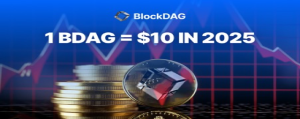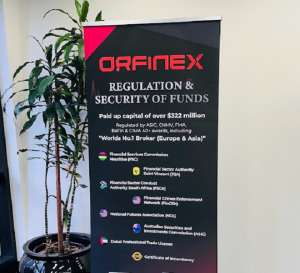80% of all Chinese FX business is in second tier towns, often backed by property investors
Once a rural, rice-growing expanse in the Jiangsu province of China, the city of Changzhou is now home to 4.5 million people, making it a relatively small town by Chinese standards. Despite its relatively diminutive population, it is part of the Yangtze Delta region which has 36 million inhabitants, and the town itself with its […]

Once a rural, rice-growing expanse in the Jiangsu province of China, the city of Changzhou is now home to 4.5 million people, making it a relatively small town by Chinese standards. Despite its relatively diminutive population, it is part of the Yangtze Delta region which has 36 million inhabitants, and the town itself with its 4.5 million residents generates a GDP of $48 billion per annum.
In Changzhou, it is not the size of the population which is of consideration, but more the diversification of business which has led some of rural China’s provincial IBs to build substantial business which work closely with some of the top names in the industry. Marking itself out as a ‘Science and Education Town’, Changzhou’s population is urbane, sophisticated, entrepreneurial and highly educated.
Many investors in large FX IB businesses in Changzhou and investors in the expansion of such companies are property developers. Property development and construction is vast and highly profitable in China, and those which have successfully operated in that industry have begun to invest in driving forward the business of IBs. Heads of other businesses are often extremely wealthy because of the sheer size of the commercial and industrial operations that exist on the Yangtze Delta region.
Indeed, across China, 80% of all FX business is in the provinces, mostly with businesses located in second tier cities such as Changzhou. Development has been rapid and people are continuing to invest in property, and as well as FX, are diversifying into enterprises such as organic farms and other new technology including renewable energy and biotech.
What is interesting is that this demonstrates that the vast majority of potentially revenue-generating IBs for western firms are in the rural provinces. Indeed, Zhengzhou and Shenzhen are awash with high-quality IBs with very large order flow in some cases with volumes of up to 90,000 lots per year, the former agricultural regions which lie 200 km outside Shanghai are, according to one particular IB in the region, better than the major cities.
Property developers and manufacturers of raw materials are used to dealing with non-liquid assets on a vast scale, therefore FX is very different in terms of its potential return on investment, therefore the notion that a property magnate or agricultural machinery manufacturer would entertain investing in or founding a large-scale IB and money management business is alien to western business methodology, but very common here in Changzhou.
Rather than trading the markets, investing in IBs to help grow their expansion is commonplace, with those who generated wealth in property now looking to diversify into other businesses which are liquid for a quicker profit.
How do the figures stack up?
In Changzhou, Australian FX brokerages such as GoMarkets and Invast are popular, and Markets.com also have managed to penetrate the region with some success. This represents a diversion from the usual large firms with presence in China.
A number of firms in the region operate their business by selling EAs that they have developed. On average, a company in Changzhou will have a userbase of approximately 30,000 people who trade automatically via EAs, and up to 150 EAs which represent different trading strategies.
The business model is to sell the EAs for a monthly subscription or flat annual fee to brokerages, or offer them free of charge if a trading account is opened.
If you channel the business via this method, the spread-based revenue on standard Chinese spreads is worth approximaely $2 million per month to an IB.
Mind you don’t slip!
A caveat to bear in mind is the possibility of execution problems with EAs. This is twofold:
Slippage and rejections are important. Brokers who have invested in either their own proprietary systems or have sophistcsted execution systems which automatically internalize or A-book trades and act quickly need to ensure no execution probs with the eas otherwise it becomes the weak link which renders not only an expensive exclusive partnership futile but also the whole system will not be able to operate at its maximum potential.
Similarly if there are a selection of several very well engineered eas then brokers need to have a system which internalizes flow that can be monetized on B book at market price or sent to a liquidity provider or Tier 1 and executed on an agency basis without any delay or intervention. This way, a diverse range of EAs can be handled by a broker without rejection or slippage.
As with most FX introducing agents in China, brand and legacy is important among Changzhou’s constituents when choosing a broker to work with.
Exclusive IB arrangements are quite rare due to this, which means investment from brokerages in the introducer’s business is often a difficult means of proceeding because many will wish to retain long term relationships with other firms that they are used to working with yet don’t invest in the actual introducer, instead concentrating on providing good service to the IB.
This is sensible for any new broker wishing to enter the market, as joining other firms as an IB rather than looking for exclusivity is prudent because there is less risk for both parties.
If, for example, an introducer moves away from existing arrangements with other brokers and signs an exclusive deal with a new broker and it goes wrong, all three entities suffer greatly.
Featured image: Downtown Changzhou on the Yangtze River









